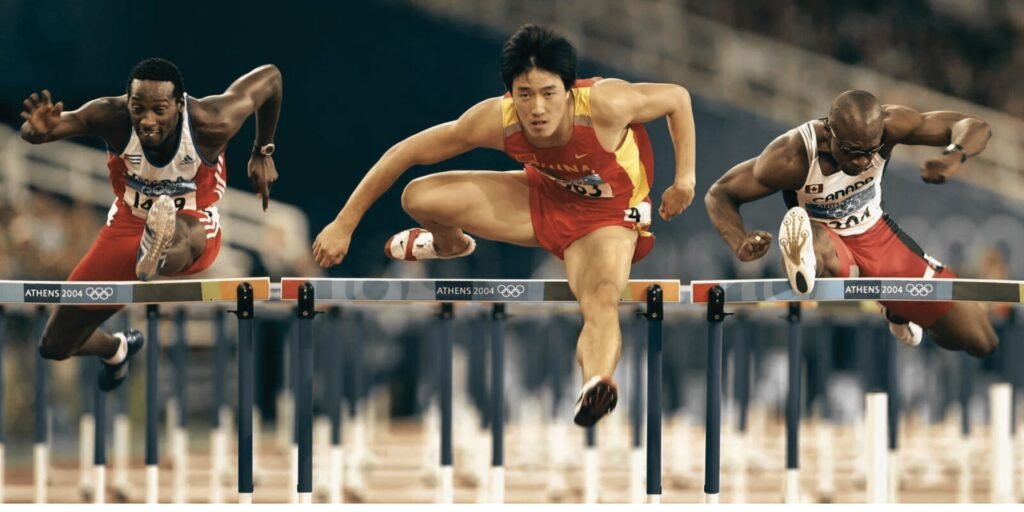Introduction
Bowling is a popular recreational activity enjoyed by millions of people worldwide. Why Should Bowling Be An Olympic Sport It’s a sport that combines skill, strategy, and physical prowess, making it a compelling candidate for inclusion in the Olympic Games. While bowling has not yet been added to the Olympic program, there are several compelling reasons why it should be considered for future inclusion. In this essay, we will explore these reasons in detail, Why Should Bowling Be An Olympic Sport delving into the history of bowling, its global popularity, its attributes as a sport, and the potential benefits of making it an Olympic sport.
History of Bowling:
Why Should Bowling Be An Olympic Sport
Bowling has a long and rich history that dates back thousands of years. Why Should Bowling Be An Olympic Sport The origins of bowling can be traced to ancient Egypt, where a version of the game was played as far back as 3200 BC. It has also been documented in various forms in Greece and Rome. The modern version of bowling that we know today evolved in Europe during the Middle Ages and made its way to the United States in the 19th century. Over the centuries, bowling has evolved from a simple pastime into a competitive sport with established rules and regulations.
Global Popularity:
One of the key reasons why bowling should be an Olympic sport is its global popularity. Bowling is played in virtually every corner of the world, Why Should Bowling Be An Olympic Sport with millions of people participating in both casual and competitive settings? It transcends cultural boundaries and is accessible to people of all ages and skill levels. This widespread appeal means that it has the potential to attract a diverse and engaged audience to the Olympic Games.
Bowling has a strong presence in many countries, including the United States, Japan, South Korea, and several European nations. It is also a popular sport in countries with emerging bowling communities, such as India and China. The global reach of bowling ensures that it can contribute to the international character of the Olympics by involving athletes from a wide range of nations.
Attributes as a Sport:
Bowling possesses several attributes that make it a legitimate sport worthy of Olympic recognition. These attributes include: Why Should Bowling Be An Olympic Sport
Skill and Strategy: Bowling requires a high level of skill, precision, and strategy. Competitors must master the art of rolling the ball with accuracy, controlling its spin, and adjusting to changing lane conditions. They must also make strategic decisions about their choice of bowling ball, approach, and delivery.
Physical Fitness: While bowling may not require the same level of physical exertion as some other Olympic sports like athletics or gymnastics, it does demand physical fitness. Athletes need strength, flexibility, and stamina to perform at their best over the course of a tournament.
Mental Toughness: Like many Olympic sports, bowling requires mental toughness and focus. Athletes must maintain their concentration, manage pressure, and make split-second decisions under challenging conditions.
Fair Competition: Bowling competitions are governed by strict rules and regulations to ensure fair play. This includes equipment standards, lane conditions, and scoring systems that are designed to create a level playing field for all competitors.
International Federation: Bowling is overseen by the World Bowling Federation (WB), which is recognized by the International Olympic Committee (IOC). This international governing body ensures that the sport is organized and regulated at a global level, meeting the standards expected of Olympic sports.
Potential Benefits of Olympic Inclusion:
The inclusion of bowling in the Olympic Games could bring about numerous benefits, both for the sport itself and for the Olympic movement as a whole. Why Should Bowling Be An Olympic Sport
Increased Visibility: The Olympics are one of the most-watched sporting events in the world. By becoming an Olympic sport, bowling would gain unprecedented visibility and exposure to a global audience. This increased exposure could lead to a surge in participation and interest in the sport at all levels.
Inspiration for Youth: The Olympic Games inspire countless young athletes to pursue their dreams. Bowling’s inclusion would encourage more young people to take up the sport and aspire to represent their countries on the world stage.
Enhanced Funding and Support: Olympic sports often receive increased funding and support from national governments and sports organizations. This additional financial support could help develop the infrastructure and talent pool for bowling in countries around the world.
Promotion of Gender Equality: Bowling is a sport that is inclusive and accessible to people of all genders. Its inclusion in the Olympics would further promote gender equality in sports, aligning with the IOC’s commitment to gender balance.
Cultural Exchange: The Olympics are a celebration of diversity and cultural exchange. Bowling’s global appeal would facilitate cultural exchange among athletes and fans from different nations, fostering understanding and unity.
Economic Impact: Hosting bowling competitions as part of the Olympics would have a positive economic impact on the host city and region. It would attract spectators, generate revenue, and boost tourism.
Legacy and Development: The legacy of hosting Olympic bowling events would include improved facilities, increased interest in the sport, and ongoing development programs. These benefits would extend beyond the duration of the Games.
Counterarguments:
While there are compelling reasons to include bowling in the Olympics, there are also some counterarguments and challenges to consider. These include:
Competition with Existing Sports: Why Should Bowling Be An Olympic Sport The Olympic program is limited in terms of the number of sports it can accommodate. Adding bowling would mean displacing or competing with existing sports, which could face opposition from their respective international federations.
Venue Requirements: Bowling requires specialized facilities with multiple lanes and equipment. Hosting bowling events would necessitate significant investment in infrastructure, which may not be feasible for some host cities.
Viewer Appeal: Some critics argue that bowling may not have the same viewer appeal as more traditional Olympic sports. However, this perception could change with increased exposure and promotion.
Scoring Complexity: Bowling’s scoring system can be complex for casual viewers to understand. Efforts would need to be made to simplify the scoring and make it more accessible to a broader audience.
Limited Athleticism: Critics may argue that bowling lacks the athleticism and physical demands of some other Olympic sports. However, many Olympic sports encompass a wide range of physical abilities and skills.
Bowling enthusiasts and advocates have long argued that bowling should be included as an Olympic sport, and they have several compelling reasons to support their case. While it has not yet been accepted into the Olympic program, this sport has a rich history and a significant global following that make it a worthy candidate for inclusion. In this essay, we will delve into the various reasons why bowling should be an Olympic sport, exploring its history, popularity, accessibility, skill requirements, and potential benefits for the Olympic movement.
Rich History and Tradition
One compelling reason for including bowling in the Olympics is its deep-rooted tradition and heritage. Olympic sports often have historical significance and cultural ties, Why Should Bowling Be An Olympic Sport bowling fits this criterion admirably. By adding bowling to the roster of Olympic sports, the Games can pay homage to the sport’s historical significance while also showcasing its modern adaptation.
Global Popularity
Bowling is a sport with a global presence, enjoyed by millions of people in virtually every corner of the world. It is not confined to any specific region or culture but has a universal appeal that transcends borders. This global popularity is evident in the numerous international tournaments and championships held regularly, including the World Bowling Championships and the QubicaAMF Bowling World Cup.
One of the primary goals of the Olympics is to unite people from diverse backgrounds through sports. By including bowling, the Olympics can expand its reach and appeal to a broader global audience, fostering greater international unity and understanding.
Accessibility and Inclusivity
One of the most compelling arguments in favor of including bowling in the Olympics is its accessibility and inclusivity. Bowling is a sport that can be enjoyed by individuals of all ages, genders, and physical abilities. Unlike some Olympic sports that require specific physical attributes or extensive training from a young age, anyone can participate in and enjoy bowling with minimal barriers to entry.
This inclusivity aligns with the Olympic values of promoting sports for all and encouraging participation regardless of an individual’s background or physical capabilities. By adding bowling to the Olympic program, the Games would further emphasize the importance of inclusivity and accessibility in sports.
Skill and Strategy
Bowling is often mistakenly seen as a casual pastime rather than a competitive sport, but it requires a high level of skill, precision, and strategy. Professional bowlers spend years honing their techniques and mastering the intricacies of the game. Elements such as lane conditions, oil patterns, and pin placements all come into play, making it a sport that demands both physical and mental acumen.
Olympic sports are expected to showcase excellence and athleticism, and bowling meets these criteria admirably. Athletes must demonstrate exceptional hand-eye coordination, accuracy, and adaptability, all while contending with the dynamic nature of the game. By including bowling in the Olympics, the Games can celebrate the skill and dedication of its athletes, much like it does with other precision sports like archery and shooting.

Broad Participation Base
Bowling enjoys a broad and active participation base. Amateur bowlers and enthusiasts worldwide actively engage in leagues, tournaments, and casual play. The competitive nature of the sport is evident in the numerous national and international championships held annually.
Adding bowling to the Olympic program would not only recognize the efforts of professional bowlers but also provide a platform for amateur athletes to aspire to. It could inspire a new generation of bowlers to pursue the sport at a higher level, thereby contributing to the growth and development of bowling on a global scale.
Economic Impact
The inclusion of bowling in the Olympics could have a positive economic impact on the host city and country. The sport attracts a substantial fan base, both in terms of spectators and television viewers. Hosting bowling events during the Olympics would draw additional tourism and generate revenue from ticket sales, merchandise, and broadcasting rights.
Furthermore, the construction and maintenance of bowling facilities would create jobs and stimulate economic activity in the host region. The Olympics have historically been a catalyst for economic growth and infrastructure development, and adding bowling to the program could enhance these benefits.
Gender Equality
Gender equality is a fundamental principle of the Olympic Games, and efforts have been made to achieve parity in both the number of events and participating athletes. Bowling aligns with this principle as it allows for both male and female competitors to compete on equal terms. It is one of the few sports where mixed-gender teams often compete together, promoting gender inclusivity and highlighting the importance of collaboration and teamwork.
By including bowling, the Olympics can continue to champion gender equality in sports and set an example for other international competitions.
Youth Appeal
The International Olympic Committee (IOC) has recognized the need to attract younger audiences to the Games. Bowling has a unique advantage in this regard, as it already has a significant following among younger generations. Many bowling centers offer youth programs and leagues, fostering an early interest in the sport. By including bowling in the Olympics, the Games can tap into this youth appeal and maintain their relevance among the younger demographic.
Television and Sponsorship Opportunities
Television networks and sponsors are essential to the financial success of the Olympics. Bowling has a proven track record of attracting viewers and sponsors, making it a valuable addition to the Olympic program. With its visually appealing nature and potential for dramatic moments, bowling events could capture the attention of global audiences and advertisers.
Including bowling in the Olympics could lead to increased broadcasting rights fees and sponsorship deals, ultimately benefiting the entire Olympic movement.
Cultural Exchange
The Olympic Games are a unique platform for cultural exchange and diplomacy. Athletes from different countries come together to compete, share experiences, and build friendships. Bowling, with its international appeal, can contribute to this exchange by bringing athletes and fans from diverse backgrounds closer together. It provides an opportunity for athletes to learn about and appreciate different cultures while fostering a spirit of sportsmanship and cooperation.
Bowling as an Olympic sport has been a topic of debate and discussion for many years. While it has not yet been included in the Olympic Games, there are several compelling reasons why bowling should be considered for inclusion as an Olympic sport. In this essay, we will explore the history of bowling, its popularity, its potential as an Olympic sport, and the benefits it could bring to the Olympic movement.
Historical Significance:
Bowling is a sport with a rich history that dates back to ancient civilizations. The game has evolved over centuries and has been played in various forms across different cultures. Its historical significance makes it a worthy candidate for inclusion in the Olympic Games, as it represents a part of our shared human heritage.
Global Popularity:
Bowling is one of the most popular recreational sports in the world. It is played by millions of people of all ages and skill levels in countries across the globe. Its widespread popularity ensures that it would attract a large and diverse audience if included in the Olympics, making it a commercially viable and appealing addition to the Games.
Inclusivity:
One of the key principles of the Olympic movement is inclusivity, and bowling aligns well with this principle. It is a sport that can be played by people of all ages, genders, and physical abilities. Unlike some Olympic sports that require specific physical attributes or training from a young age, bowling can be enjoyed by anyone, promoting the spirit of inclusivity that the Olympics aim to uphold.
International Federation:
Bowling is governed by the World Bowling Federation (WB), which is recognized by the International Olympic Committee (IOC). The existence of a well-established international governing body is a crucial factor in considering a sport for inclusion in the Olympics. The WB can ensure that the sport adheres to Olympic standards and regulations.
Competitive Nature:
Bowling is a highly competitive sport that requires skill, precision, and mental focus. Olympic sports are known for pushing athletes to their limits, and bowling is no exception. It combines physical and mental aspects, making it a challenging and engaging sport for both participants and spectators.
Spectator Appeal:
Bowling offers an exciting and visually appealing spectator experience. The suspense of watching a bowler aim for a strike or a spare in the final frame of a match can be as thrilling as any other Olympic event. The sport’s simplicity and accessibility make it easy for viewers to understand and enjoy.
Technological Advancements:
Bowling has embraced technological advancements, including automated scoring systems, lane conditioning machines, and high-definition broadcasting technology. These innovations have enhanced the sport’s quality and appeal, making it more suitable for the Olympic stage.
Economic Benefits:
The inclusion of bowling in the Olympic Games could have significant economic benefits. It would attract sponsors, advertisers, and broadcasters, generating revenue that can be reinvested into the Olympic movement. Additionally, hosting bowling events would create jobs and stimulate local economies in the host cities.
Youth Engagement:
The Olympic Games are always looking for ways to engage younger audiences. Bowling’s popularity among youth and its accessibility as a recreational sport make it a valuable tool for attracting the next generation of Olympic fans and athletes.
Promoting Healthy Lifestyles:
Bowling promotes physical activity and a healthy lifestyle. Encouraging people to take up bowling can contribute to reducing sedentary behavior and combatting issues like obesity and inactivity, which are significant public health concerns worldwide.

Cultural Exchange:
The Olympics are a platform for cultural exchange and understanding among nations. Bowling, with its global reach, can facilitate cultural exchange by bringing together athletes and fans from diverse backgrounds and promoting a sense of unity and camaraderie.
Legacy and Tradition:
The inclusion of bowling in the Olympic Games would create a lasting legacy for the sport. It would inspire future generations of bowlers and contribute to the preservation and growth of this traditional sport.
Environmental Sustainability:
Modern bowling centers have made efforts to improve their environmental sustainability by using energy-efficient equipment and reducing water consumption. Highlighting these efforts at the Olympic level can promote environmentally responsible practices in sports.
Low Cost of Entry:
Compared to many Olympic sports that require extensive facilities and equipment, bowling has a relatively low cost of entry. This makes it accessible to a wide range of countries, including those with limited resources and can help promote a more diverse field of participating nations.
Table of Contents
Showcase for Professional Bowlers:
The inclusion of bowling in the Olympics would provide professional bowlers with a prestigious platform to showcase their skills. It would elevate the status of the sport and potentially attract more talent to the professional ranks.
Positive Impact on the Sport:
The prestige of being an Olympic sport can have a positive impact on bowling at all levels. It can lead to increased funding for grassroots development, better coaching, and improved facilities, ultimately raising the overall standard of the sport.
Inspiring Future Athletes:
The Olympic Games serve as a source of inspiration for aspiring athletes. Including bowling can inspire young people to take up the sport, work hard, and strive for Olympic success.
The Olympic Games promote the values of fair play, sportsmanship, and respect. Bowling, with its emphasis on etiquette and good sportsmanship, aligns well with these values and can serve as a positive example for athletes and fans alike.
Demonstrating Adaptability:
The inclusion of bowling in the Olympics would demonstrate the ability of the Games to adapt and evolve to reflect the changing interests and demographics of the global population. It would show that the Olympics are responsive to the interests of a broader range of sports enthusiasts.
Ancient Origins
Bowling has a long and rich history that dates back to ancient civilizations. Evidence of early forms of bowling can be traced to Egypt as far back as 3200 BCE. It was also played by ancient Romans, who used stone balls to knock down pins. This historical lineage demonstrates that bowling has been a part of human culture for millennia, making it a sport with deep-rooted historical significance.
Worldwide Participation
Bowling is one of the most widely played sports globally, with millions of people of all ages participating in recreational and competitive bowling. This widespread participation ensures that the sport has a broad and dedicated fan base, which is essential for the success of any Olympic sport.
International Competitions
Bowling has a well-established system of international competitions, including the World Bowling Championships and the Pan American Bowling Confederation Championships, among others. These events draw athletes from all corners of the globe, showcasing the sport’s global appeal and competitiveness.
Olympic Values
The Olympic Games aim to promote values such as friendship, respect, and excellence. Bowling aligns with these values by fostering camaraderie among participants and encouraging sportsmanship. The inclusivity of bowling allows athletes of varying skill levels to compete and improve, further promoting the Olympic spirit.
Physical Fitness
Contrary to the perception of some, bowling is a physically demanding sport that requires strength, balance, and coordination. Bowling involves repeated movements, which can put strain on the body over time. Athletes must maintain their physical fitness to perform at their best, similar to other Olympic sports.
Mental Toughness
Bowling is not only physically challenging but also mentally demanding. Athletes must make precise calculations, adapt to changing lane conditions, and manage their emotions throughout a competition. This mental fortitude is a hallmark of Olympic athletes, and bowling can offer a unique test of these mental skills.
Low Barriers to Entry
One of the key advantages of bowling is its accessibility. Unlike many Olympic sports that require expensive equipment or specialized facilities, bowling can be played by people of all ages and socioeconomic backgrounds. This inclusivity aligns with the Olympic movement’s goal of promoting sports for all.
Bowling is one of the few sports that has achieved a high level of gender equality in both participation and competition. Men and women compete on an equal footing in most bowling tournaments, and this balanced representation is in line with the International Olympic Committee’s commitment to gender equity in sports.
Tourism and Revenue
The inclusion of bowling in the Olympic program would have a significant economic impact. Bowling events would attract spectators and athletes from around the world, boosting local tourism and generating revenue for host cities. The sport’s popularity would also attract sponsors, further contributing to the financial success of the Olympics.
Growth of the Sport
Being part of the Olympics can lead to increased investment in the sport at the grassroots level. National governing bodies and local communities would likely allocate more resources to the development of bowling, fostering its growth and ensuring its sustainability as a global sport.
Ethical Sport
Bowling is known for its emphasis on fair play and sportsmanship. Athletes are expected to adhere to strict codes of conduct, promoting a culture of respect and integrity. These values are consistent with the principles of the Olympic Games and would contribute positively to the Olympic movement.
Peaceful Competition
The Olympic Games have long been a symbol of peaceful international competition. Bowling, with its non-contact nature and focus on individual and team performance, embodies the spirit of peaceful competition. It provides an opportunity for nations to come together in a spirit of friendship and mutual respect.
Adaptability
Bowling is a sport that has continuously adapted to changes in technology and lane conditions. The introduction of new technologies, such as lane oil patterns and tracking systems, has made the sport more engaging for both participants and spectators. This adaptability is essential for a sport’s relevance in the modern Olympic landscape.
Fan Engagement
Incorporating bowling into the Olympic program could lead to innovations in broadcasting and fan engagement. With its global appeal and potential for high-scoring matches, bowling can attract a diverse audience, driving interest in the Games and expanding the Olympic fan base.
Conclusion
bowling possesses the attributes of a legitimate sport, including skill, strategy, and physical fitness. Its global popularity, accessibility, and inclusivity make it a strong candidate for inclusion in the Olympic Games. While there are challenges and counterarguments to consider, the potential benefits, including increased visibility, inspiration for youth, and enhanced support, make a compelling case for bowling’s inclusion in the Olympic program. As the world of sports continues to evolve, it is essential to explore new opportunities for diversifying and enriching the Olympic experience, and bowling has the potential to do just that.
 Cric Enjoy Sports News, Cricket Update, Live Streaming
Cric Enjoy Sports News, Cricket Update, Live Streaming








Your article helped me a lot, is there any more related content? Thanks!